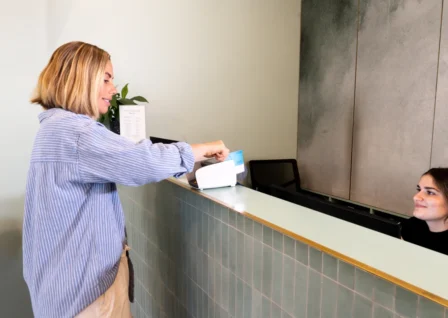No more card surcharges? How Australian healthcare providers can prepare

Business Strategies

Written by Pete Williams, CTO Tyro Health at Tyro Payments
As aged care providers prepare for the new Support at Home program, many are re-evaluating their approach to collecting care recipient contributions. With changing payment structures on the horizon, is your current collection method still the right fit?
Collecting care recipient contributions efficiently is critical to the financial health and operational performance of aged care providers. Yet too often, it’s a source of significant administrative friction and cash flow delays.
With the Support at Home program reshaping how contributions are structured—introducing variable rates and potentially increasing payment frequency—providers must reassess how payments are collected, managed, and reconciled.
For years, Direct Debit has been the industry standard, offering a seemingly automated way to collect regular fees. However, the hidden costs are becoming apparent: failed payments that require manual follow-up, account changes that disrupt collection schedules, and batches that take hours to reconcile. As contribution models evolve under the new program, these inefficiencies will only multiply.
This article explores the practical challenges of using Direct Debit in aged care and introduces modern alternatives that can transform your payment operations—such as Card on File (secure storage of payment card details) and PayTo (the next generation of digital direct debits). These solutions can reduce administrative overhead, speed up reconciliation, and improve the experience for both care recipients and your finance team.
At its core, Direct Debit allows providers to ‘pull’ funds directly from a care recipient’s bank account via the Bulk Electronic Clearing System (BECS). This occurs only after receiving explicit authorisation—the Direct Debit Request (DDR)—from the care recipient or their financial delegate. This authorisation is the bedrock of the entire process.
Direct Debit has been widely adopted across the aged care sector due to its:
However, it’s far from perfect.
Direct Debit may work well for collecting standard periodic fees—but with variable amounts (e.g. based on service usage under Support at Home) things get complicated fast. These variable payments require more sophisticated communication with recipients, flexible payment systems, and strict adherence to DDR service agreement terms to maintain compliance and avoid disputes.
Setting up Direct Debit isn’t plug-and-play. Establishing a compliant and effective Direct Debit system involves several critical steps:
Once set up, the typical processing flow involves:
While Direct Debits can run smoothly in the background, it’s the exceptions—dishonours, delays, and manual intervention—where administrative costs quickly escalate.
Common reasons:
The process:
Dishonour reports often arrive the business day after funds were expected to settle. Sometimes funds appear settled, only to be reversed later when the dishonour notification comes through.
Identifying the issue, matching it to the right care recipient, and triggering the right follow-up—retrying the payment, updating account details, contacting the care recipient or delegate—becomes a manual or semi-automated scramble.
The impact:
Delayed receipt is obvious, but the significant administrative overhead chasing these failures is often underestimated. It also leads to potentially awkward conversations with care recipients or their financial delegate.
Read on as we explore smarter, more future-ready alternatives to Direct Debit—like Card on File and PayTo—the key advantages of these solutions and how embracing them will make you better equipped to deliver high-quality care without the operational headaches.
To help providers navigate this transition, Tyro Health will seamlessly integrate with the Support at Home framework, enabling aged care providers to process Support at Home claims and manage participant contribution payments with ease. If you’re an aged care service provider or software developer interested in learning more about our integrated solution, please register your interest here.
Disclaimers
Tyro Health provides this article for general information and educational purposes and does not take into account the financial situation or need of any reader. The information provided must not be relied upon as legal, tax or financial advice.